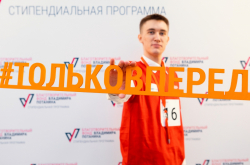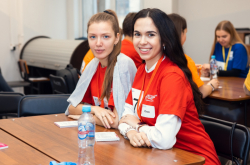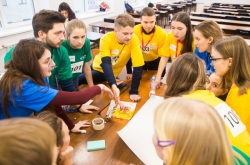Dmitry Panov, Data, Culture and Visualization
My research focuses on the methods for analyzing and visualizing data in the field of humanities. Back in my Bachelor’s studies, I served as a chair of the university’s student union. There, I learned to negotiate with different people and find solutions pertaining to many aspects of students’ lives. I think that these qualities helped me pass the selection and win the scholarship. What winning the contest means tome is the recognition of my achievements in both research and societal spheres, as well as financial support of my further development in the chosen field.
Veronika Yurova, Chemistry of Applied Materials
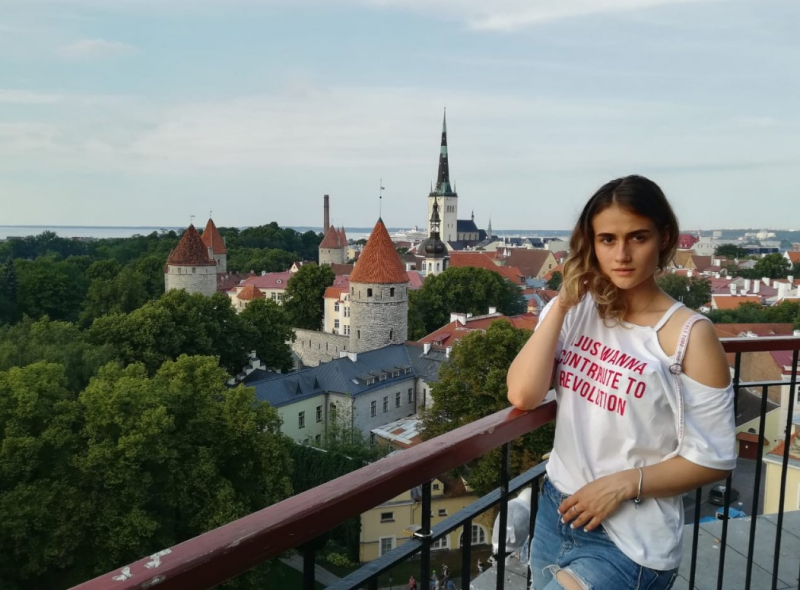
Every scientist knows that achieving results in science requires a lot of hard work. Following this principle, I spend 99% of my time in the lab. I won’t hide it: throughout the competition, I, probably like other participants, was somewhat anxious. But the moral support provided by my friends and family helped me confidently pass through all the rounds. In my opinion, what played a decisive role were my proactivity and the ability to define my position in a clear way. Thanks to the scholarship, I can continue my scientific pursuits without any distractions.
Valeria Nikolaeva, Chemical Nanoengineering of Materials

The Potanin Scholarship Contest and I go a long way back. Last year, I participated in the selection, passed all two rounds but ended up in the backup list. That’s why I decided to try again this year. From my experience, I can say that what really helps is believing in yourself and never giving up. In the onsite round, it’s important to carry yourself in an open and friendly way, and try to enjoy solving tasks and interacting with other participants.
The tasks resemble business cases, which is why the onsite round calls for a certain degree of erudition. You have to be up to date with such topics as “Professions of the Future” and “Development of Humans and Science in the Following 50 years”. I’d also note that the judges closely monitor how the participants behave during the contest. In my opinion, a participant’s all-consuming ambition to win and a strong desire to stand out tend to backfire. On the other hand, the ability to listen, good organizational skills, and respect towards your teammembers won’t go amiss.
Artemy Zenkin, Intelligent Technologies in Telecommunications
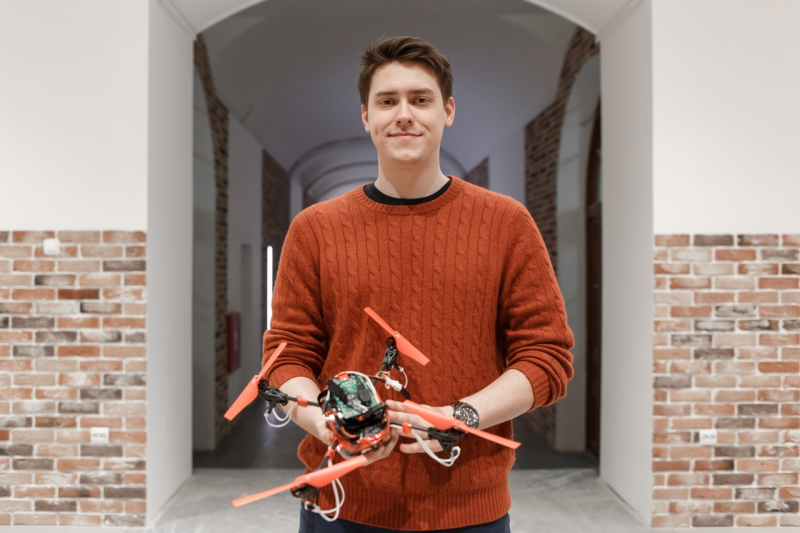
I’ve been doing robotics for five years now. A year and a half ago, I founded a laboratory for pilotless aircraft research at the university. As of now, I’m head of the ITMO University grant for the creation of a drone station. I’m also an active supporter of the concept of interdisciplinarity, implementing joint projects with ITMO’s Infochemistry Center.
It’s hard to define the criteria we were judged by. As one of the inspectors told me, “Most of the time, you have no clue what skill this specific task tests.” So my advice is generic: don’t attempt to play the part of someone you’re not, it looks rather stupid and ridiculous to others. The main thing for a participant is to know why they need the scholarship and where they see themselves in six months, one year, five years.
Daria Gorbenko, Molecular Biology and Biotechnology
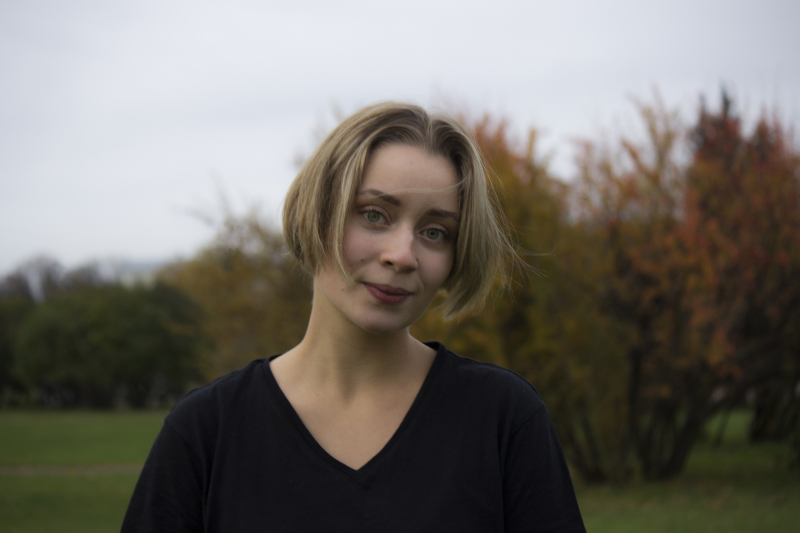
As far as I know, the competition encourages people to changetheir field of education. I’m one of the examples. My Bachelor’s degree was in physics of nanostructures, but then my research got me interested in biology, and I decided to move into this field. I’m enjoying everything, but this approach takes up a lot of time and energy, because parallel to the new program I have to fill in gaps in my knowledge. I needed the scholarship to be able to learn for as much time as necessary without other things distracting my attention.
As my piece of advice I’d say that the onsite round is a team competition, you don’t have to prove your ability to do everything on your own; on the contrary, you have to show how great and efficient you are at interacting with others.
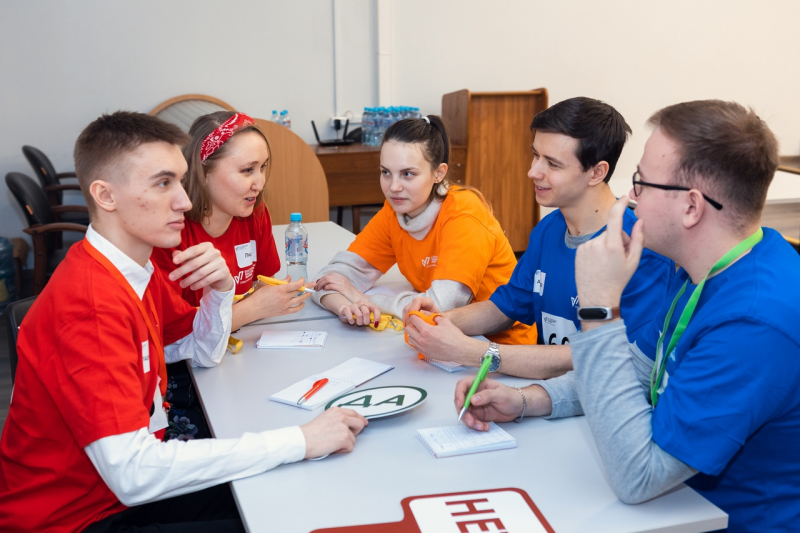
Michele Davydenko, Compressed Natural Gas Technologies
Speaking about the things that helped me win, first and foremost it was my previous experience of participating in events like this one. I passed the selection for an internship at the company NIPIGAS, took part in many conferences and international competitions. Another factor was a well filled out application where I had to present all my achievements, including scientific ones. I attribute my research work to my main achievements; at the moment I have about 30 published articles and abstracts, peer-reviewed by the Russian Science Citation Index. One article is included in the Scopus database. I need the scholarship to pay for additional education.
Asel Alisherova, Innovative Marketing
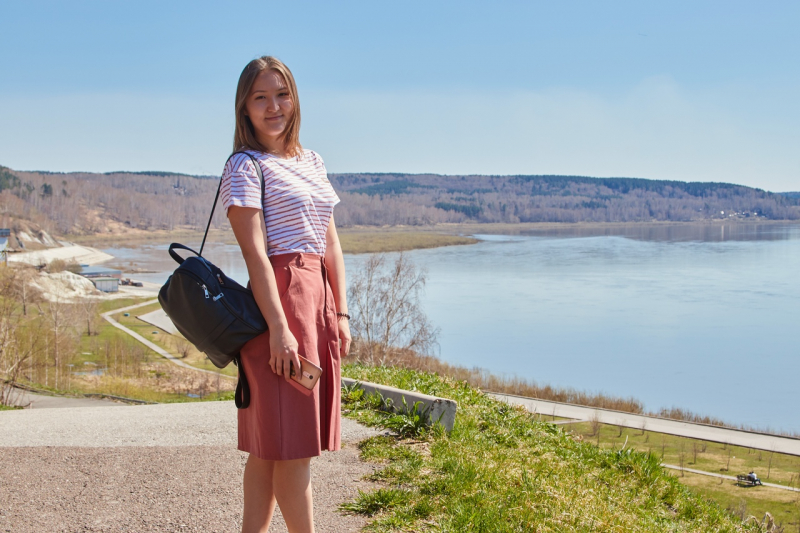
I can’t answer with certainty what exactly determined my win in the contest. But what possibly helped at the application submission stage was my active social position, experience of implementing different projects, and ability to communicate my motivation via an essay. At the onsite round, it was important to understand that it doesn’t pay to try to present yourself as someone you’re not. Don’t hog the covers if it hampers your team’s effectiveness. Also coming in handy were public presentation, decision-making and communication skills, ability to quickly adapt to tasks, and stress resistance. I plan to spend my scholarship on self-development to move forward along with the fast-changing world.



